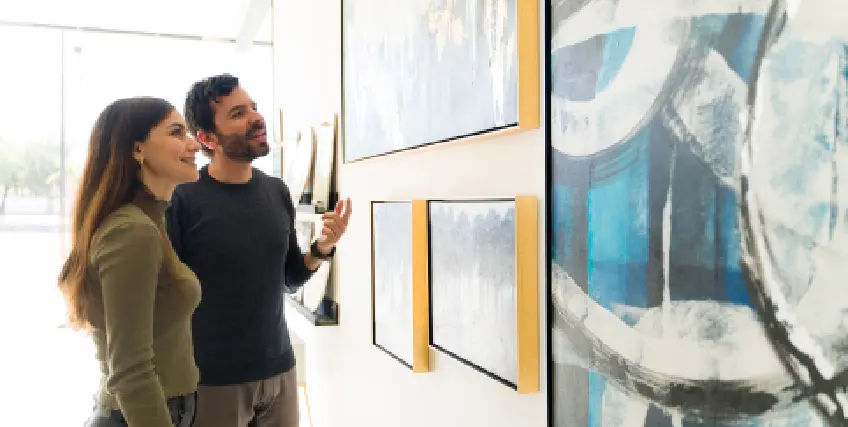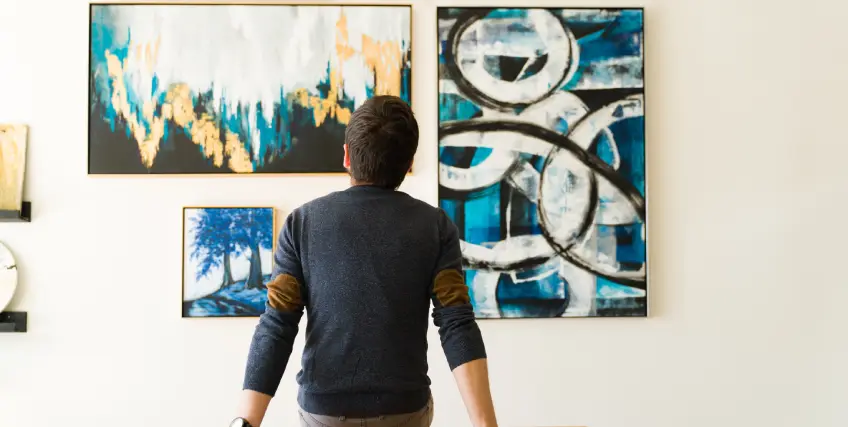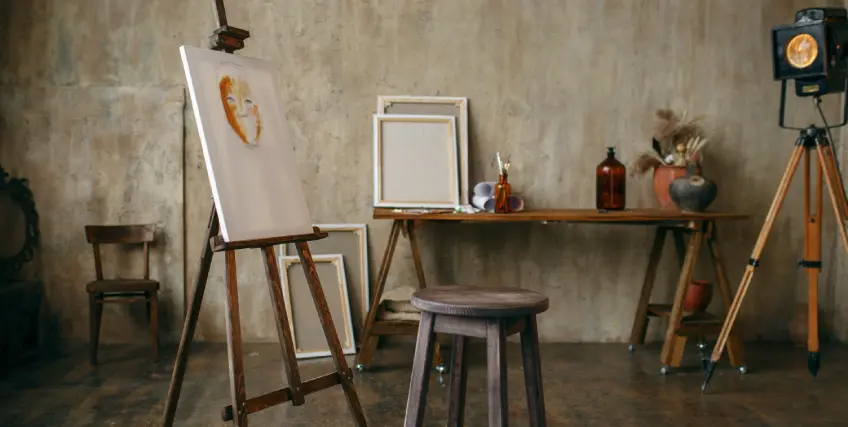How to Start an Art Studio with a Small Business Loan
Aug 14, 2025 | Last Updated on: Aug 18, 2025

Artists tend to have big visions. And if you want to expand your creative horizons by opening a studio to support arts education and arts programming in your community, you’ll want to know about business funding for the arts industry. In this guide, we’ll walk you through financial strategies to open a performing arts, visual arts, or arts business studio, particularly by leveraging small business start up funding. We’ll cover everything you need to know, from budgeting and loan types to grant programs and more.
In this article:
- Learn the process of getting business funding for the arts industry.
- Explore a range of business loans with low revenue requirements for arts funding.
- Understand how to take advantage of funding opportunities for creative industries.
How Much Does it Cost to Open an Art Studio?
Whether you’re an individual artist or part of a public art collective, the startup costs for an art studio can be significant. The average cost to open an arts studio is between $25,000 and $75,000, and unless you have deep pockets, you’ll need to explore business funding for the arts industry.
The first step to getting your venture off the ground is gaining a crystal-clear picture of your financial needs, so you know how to approach fundraising or business loan applications. You’ll need to create a detailed business plan, complete with comprehensive financial projections. This should include:
- Define your studio’s concept: It’s imperative to know what kind of art studio you’re starting. Is it teaching-focused? A for-profit working studio for your art projects? A community cultural organization? Your answers will heavily influence the types of business funding for the arts industry you can pursue.
- Identify startup costs: The initial startup costs might include security deposits for a location, equipment and art supplies, legal and professional fees, and a marketing budget to build awareness.
- Identify operational costs: Once you’re up and operating, your recurring monthly expenses may include your rent or mortgage, utilities, salaries, art supplies, social media marketing, maintenance, advocacy work, artistic work, and more.
- Build an emergency fund: Unexpected costs will arise for any small business, so it’s important to have 3-6 months of operational expenses banked as an emergency fund. Otherwise, you might have to seek additional business funding for the arts industry before you’ve paid off a previous debt.
Types of Business Funding for the Arts Industry
When you know how much you need, you can explore the various types of business funding for the arts industry. While small business loans for art studios are available, creatives may also have access to grant awards and fellowships, which provide funding that you don’t need to pay back. Let’s explore some possible loans for your business.
Term Loans
These are standard bank loans where you receive a lump sum of money upfront and repay it with fixed monthly payments over a set period. Term loans are available from both traditional lenders like banks and credit unions, and online lenders. Since you can use the funding for just about any business need, they’re useful startup loans when you have a wide range of expenses and may not know exactly what you’ll need to spend money on.
Typically, traditional lenders have stricter eligibility requirements but more favorable interest rates and loan terms, while online lenders can offer faster funding times and are willing to work with more types of businesses.
SBA Loans
The United States Small Business Administration (SBA) doesn’t lend money directly, but it partially guarantees loans made by commercial lenders, reducing the risk for both borrowers and lenders. SBA loan programs are some of the most desirable in business lending due to their favorable terms, lower down payments, and longer repayment periods. Both SBA 7(a) loans and SBA Microloans may be suitable business funding for the arts industry, provided you have a strong credit history.
Business Lines of Credit
A business line of credit is part term loan, part business credit card. You're approved for a maximum amount, and you can draw funds as needed, repaying them and then drawing again, only paying interest on what you draw. A line of credit is great for managing cash flow fluctuations, covering unexpected expenses, or purchasing supplies as needed. While not ideal for initial large startup costs, it can be a valuable ongoing source of business funding for the arts industry.
Equipment Loans
If you need to purchase expensive equipment, like a high-end kiln, specialized printing press, or advanced digital art workstations, then an equipment loan may be a good fit. With these loans, the equipment itself typically serves as collateral, making it easier to qualify and secure better terms. With equipment financing, you can get the equipment you need without the full upfront cost.
Grants
Finally, it's worth noting that grants can be a fantastic source of non-repayable business funding for the arts industry. Research local, state, and national arts organizations, foundations, and government programs that offer grants to artists and arts-related businesses. Some notable organizations that may offer grants include the National Endowment for the Arts (NEA) and local nonprofit organizations that have grant funds to provide financial support to the arts.
Just remember, grants are highly competitive and rarely offer enough funding to cover all of your costs. Pay close attention to grant application deadlines and new initiatives, and always be very thorough with your application.
How to Get Business Funding for the Arts Industry
Securing business funding for the arts industry requires preparation and persistence. Regardless of the type of funding you’re pursuing, you’ll typically have to follow this step-by-step process.
1. Determine Your Funding Needs
Before you begin applying, you’ll need to know exactly how much money you need. Take the time to create a comprehensive business plan outlining your concept, market analysis, marketing strategy, and detailed financial projections. This work will help you determine startup costs, operational expenses, projected revenue, and cash flow, all of which will help you better understand how much funding to apply for.
2. Research and Compare Lenders
Take the time to look into lenders to see what interest rates they may offer and eligibility requirements. Some lenders may be more willing to work with arts studios than others, so it’s important to talk to loan officers in person and explain your vision. Making a personal connection can make a difference when seeking business funding for the arts industry.
Lenders may allow you to prequalify for loans before a formal application to get an idea of what you might qualify for.
3. Prepare Your Documents
While you can often file documentation during the loan application process, it’s a good idea to get organized ahead of time. Lenders will want to see a detailed business plan, personal and business financial statements, personal and business tax returns, legal documents about your business, and likely a resume highlighting your experience in art, business, or teaching.
4. Apply for Approval
Most lenders allow you to apply online for funding today. The turnaround time will depend on the type of loan, the lender, and if you provided any collateral.
5. Get to Work
If you secure your loan, the real work begins. You may feel the urge to overspend, but every dollar from your business funding for the arts industry should be used wisely. Keep a close eye on your income and expenses to manage cash flow, and start building an emergency fund as soon as possible. Keep your studio visible and attractive to new students and clients, and get a steady stream of regulars and newcomers coming into the business.
Final Thoughts
Launching your own art studio may feel like a pipedream, but with careful planning and a strategic approach to business funding for the arts industry, you can secure the capital you need to get started. Transforming your artistic passion into a thriving and sustainable business is a dream come true for many artists. It takes dedication, but with this guide, you’ll be one step closer to making that dream a reality.
FAQs About Business Funding for the Arts Industry
How much money do I typically need to start an art studio?
Startup costs vary widely based on your concept, location, and desired scale. A small home-based studio might require minimal startup costs, while a commercial space with specialized equipment (like kilns) will cost more.
Can I get a small business loan with bad personal credit?
It's challenging but not impossible. Lenders heavily weigh personal credit scores for small business loans, especially for startups. You might need a co-signer for traditional loans, or have to accept higher interest rates. It’s a good idea to explore alternative funding options like microloans or community development financial institutions (CDFIs) that focus on underserved entrepreneurs. Regardless, it’s always a good idea to try to improve your personal credit before applying for a loan.
What's the difference between a loan and a grant for an art studio?
Both are business funding for the arts industry, but a loan is money you borrow and must repay, usually with interest. A grant is money you receive that does not need to be repaid, provided you meet the grant's conditions.
How long does it take to get approved for a small business loan?
It depends on the lender and type of loan. Traditional bank loans, especially SBA loans, can take several weeks to a few months due to their extensive application process. Online lenders might offer faster approvals , but often with higher interest rates. Preparing all your documents beforehand can significantly speed up the process of securing business funding for the arts industry.
Do I need a business plan to get a loan for my art studio?
A comprehensive business plan is almost always a mandatory requirement for any significant small business loan. It demonstrates to lenders that you have thoroughly thought through your business concept, market, financial projections, and operational strategy, proving you're a serious and prepared borrower seeking business funding for the arts industry.
Frequent searches leading to this page
Term Loans are made by Itria Ventures LLC or Cross River Bank, Member FDIC. This is not a deposit product. California residents: Itria Ventures LLC is licensed by the Department of Financial Protection and Innovation. Loans are made or arranged pursuant to California Financing Law License # 60DBO-35839




